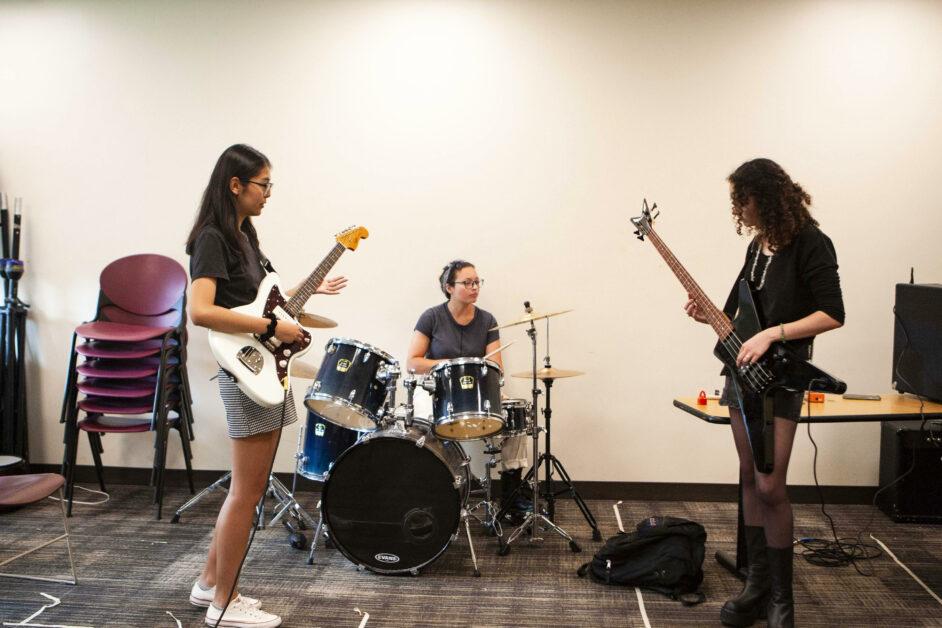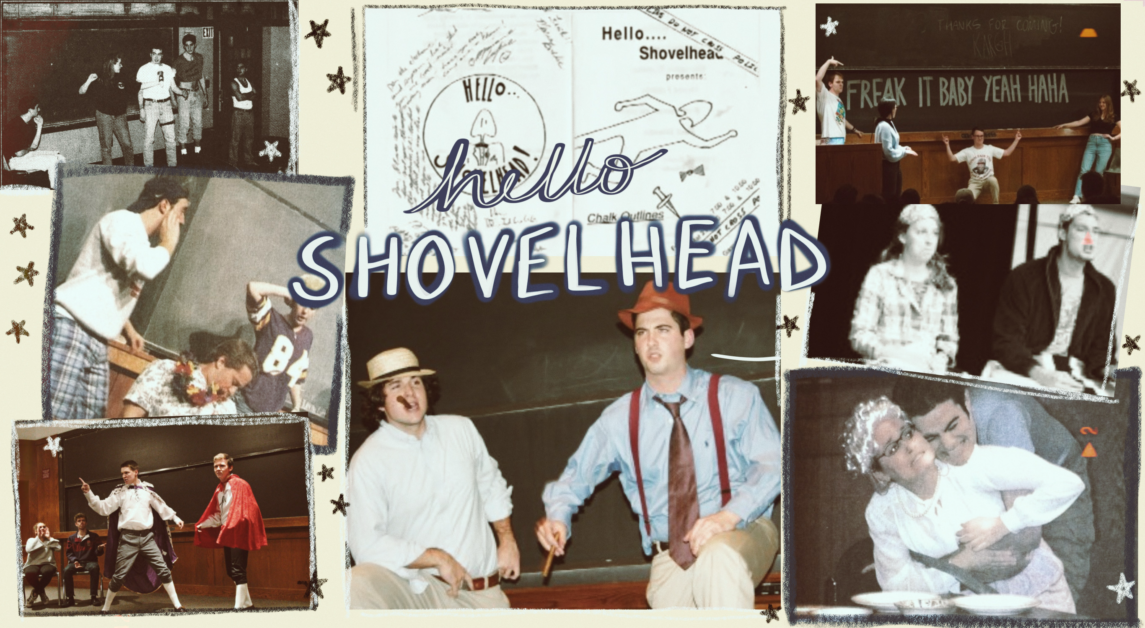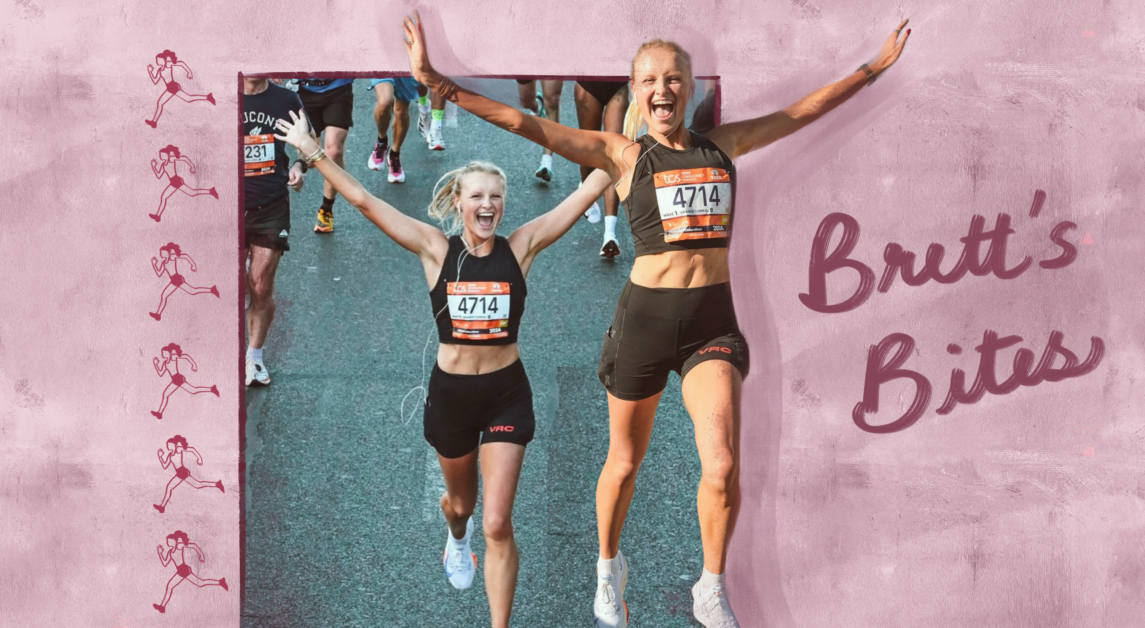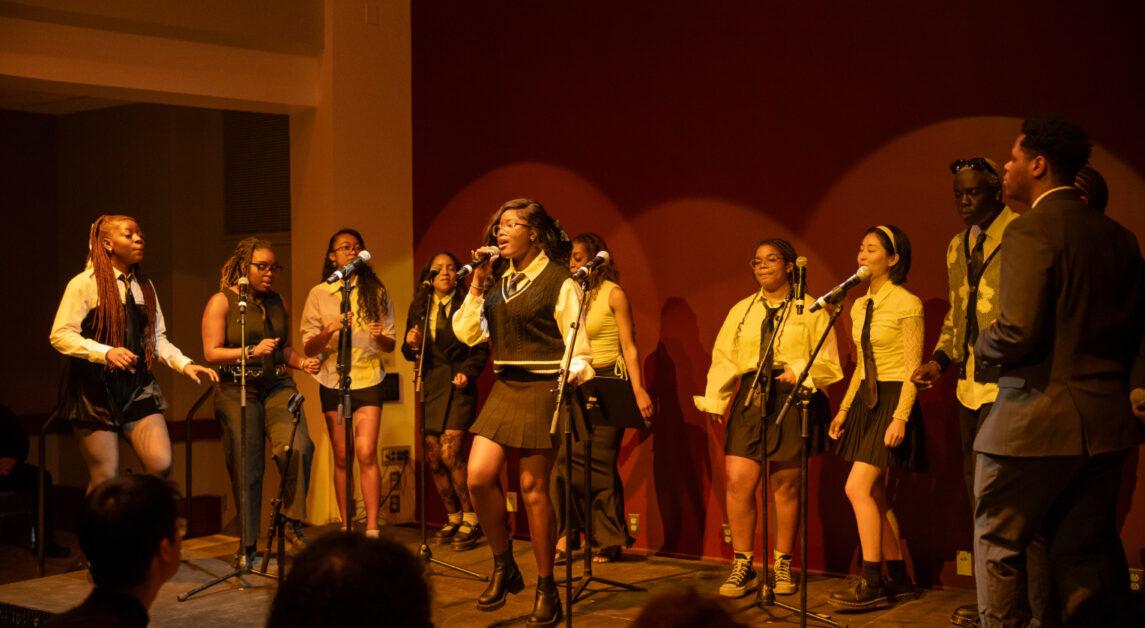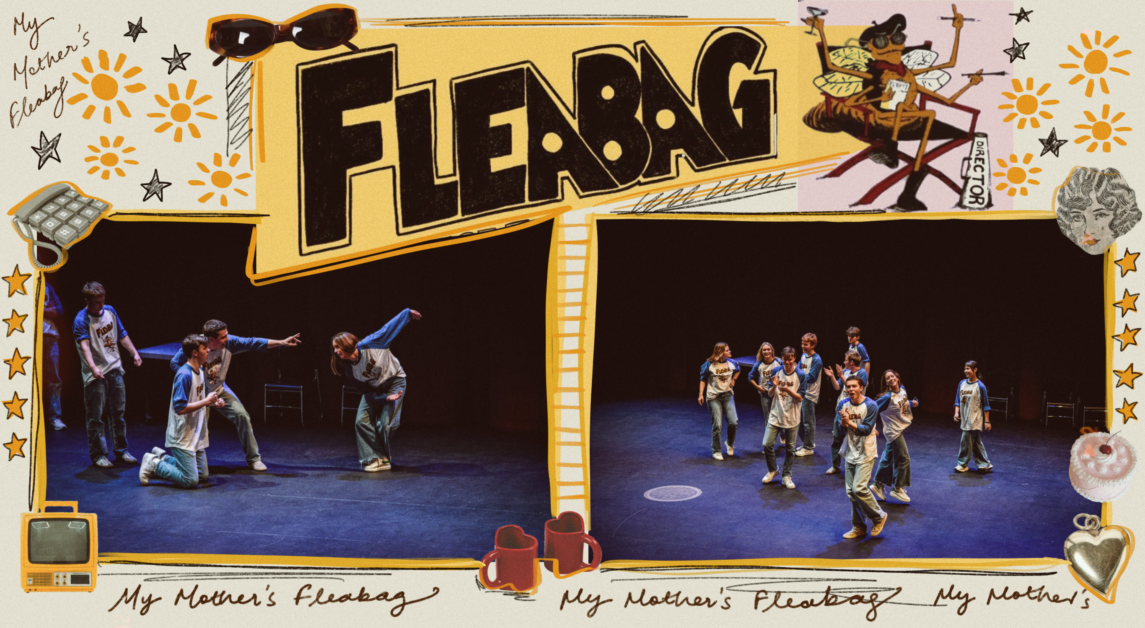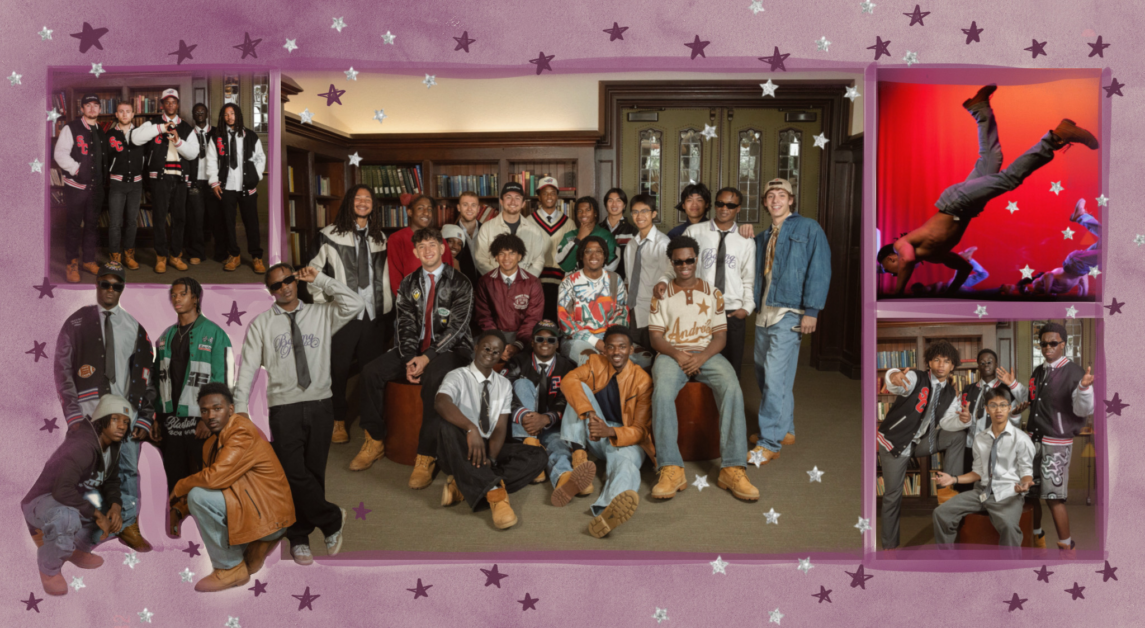Nerves were running high as the members of the band Cherry Dawn Planet arrived at their first practice in the studios in Carney Hall. Lily Hafez, MCAS ’22, sat at the drumset as the group began to play covers, testing out how sounds melded together. Madeline Dunlay, MCAS ’24, tuned up her bass, and Stella Si, MCAS ’23, set up her keyboard. Exchanging musical inspirations, Hafez and Dunlay related over their love of punk-rock and alternative bands, including the Pixies and The Smiths. Si came in with an interest in a diverse range of music—from classical music to Nirvana to Phoebe Bridgers.
Within the first five minutes of playing together, the bass notes were suddenly missing from the jaunty rhythms of The Cure’s “Friday I’m in Love.” Dunlay’s bass had abruptly stopped working. Wires were falling off the back of the instrument and the musicians spent the remainder of their first practice trying to repair it.
But by the third practice, Dunlay recalls the moment when their sound started coming together. Hafez started improvising a beat on the drums, Si synced into the rhythm on her keyboard, and Dunlay joined in on the bass—their sounds blending for a seamless moment of harmony.
“It was freestyling, doing whatever came to mind,” Dunlay said. “I mean, it was the first time that we had ever actually been able to play together well without practicing [it] exactly beforehand.”
In September of 2020, the group found each other. Dunlay went to the first Music Guild meeting during her freshman year, and soon after the meeting she received an eager text from Si, asking if Dunlay wanted to be bassist in a band along with Hafez. Ready to dive right into the music scene at Boston College, Dunlay accepted, and the trio quickly set up their first practice.
Despite limited time slots to practice, few performance opportunities, and mandatory masking and distancing rules during their rehearsals last year, Cherry Dawn Planet has emerged this year with a strong sense of ambition to develop its unique sound.
“It was definitely something that I’m like really grateful to have gotten to be a part of because it was definitely sort of a haven last year, like even with COVID taking away most musical things, it was like at least I had my band,” Dunlay said.
Dunlay’s sense of rhythm developed during her seven years as a tap dancer before she picked up the bass guitar three years ago. Hafez started playing the drums at the age of 8 and started several bands throughout middle school and high school. Si, who also occasionally plays electric guitar, started from a young age, training on the piano from the age of 4. She grew up playing classical pieces that tuned her ears to recognize clunky rhythms or misaligned chords.
It’s often a balancing act for the musicians as they tackle their heavy course loads, extracurriculars on campus, and band practices.
“It’s not really ‘do I have time for music?’” Hafez said. “I always will make the time. Like if I get an hour less of sleep because I need to play music at some point, then that’s what it’s going to take.”

Lily Hafez, MCAS ’22 
Stella Si, MCAS ’23 
Madeline Dunlay, MCAS ’24
During the fall 2020 semester the band practiced once a week, rehearsing a variety of covers—including ”Smile Like You Mean It” by the Killers and “Gigantic” by the Pixies. When it returned to campus in January, the group welcomed guitarist Calvin Czapko, MCAS ’24. At the beginning of March, the group heard about BC’s Battle of the Bands at the end of April and quickly shifted to rehearsing original songs it could perform.
With a month and a half before the competition, each band member brought in their own original songs and they worked together to arrange parts for each instrument. Reminiscent of many influential punk bands, their lyrics featured harsh criticisms of flawed bureaucratic and capitalist systems. Si’s song, “Institution,” lambastes a system that recruits people to be just another part of a relentless capitalist society, singing “80,000 f—king dollars just to be another white collar.”
Dunlay’s original piece, “Kiss Me Goodbye,” reflects on the toxicity of the hookup culture that’s prevalent on many college campuses, singing about not wanting to feel used by men. As the members work on more original music this semester, the band wants to continue addressing feminist topics in its lyrics.
“I think the most powerful way to take a stance against [sexism] is to communicate it in our music because in music you can put as much emotion in it as you want,” Hafez said.
Daily practices ramped up the week before they took the stage, which would be Dunlay and Czapko’s first time playing live for a large audience. On a windy April day they performed their four original songs—“Institution,” “Kiss Me Goodbye,” “Corporate Pawns,” and “Dissipating.” Czapko’s “Corporate Pawns” turns a critical eye on the influence of consumerism that dominates culture. Hafez’s song “Dissipating” is a more philosophical reflection on how memories slip away as time passes and people change. Although the set was not without some mishaps—the cold weather made Dunlay’s fingers go numb at one point—the musicians were ecstatic to see the enthusiastic response from their fellow students.
“We had a great audience,” Hafez said. “Like they were very excited and enthusiastic. It makes you feel like, you know, that they want to hear you play and you feel very welcome being there.”
Even though the group did not qualify for the final round of the competition, Si said audience members came up to the musicians, praising their critical lyrics and comparing them to popular punk bands.
Returning to campus this semester with a trove of 25 original songs Hafez worked on over the summer, she is itching to start recording this semester. The band is also gearing up for Music Guild’s first showcase this fall and searching for a new guitarist after Czapko left the group due to his other time commitments.
The band members returned to their practice space in Carney last Friday to start off a new year. At one of their first practices of the semester, there was excited chatter between the bandmates as Si tuned her electric guitar and the trio discussed new covers to add to its repertoire, including a few Nirvana songs.
The musicians turned toward each other in a semicircle as Hafez started in on a fast drum beat. Dunlay strummed on her bass—a large, pointed black machine that looks like it belongs on a stage—flooding the space with its deep reverberations. Si joined in with a slow, melodic rhythm on the electric guitar. The gray and beige room was overcome with their music as they all locked into the drum beat—entering their own world.
Featured Images by Ikram Ali / Heights Editor

